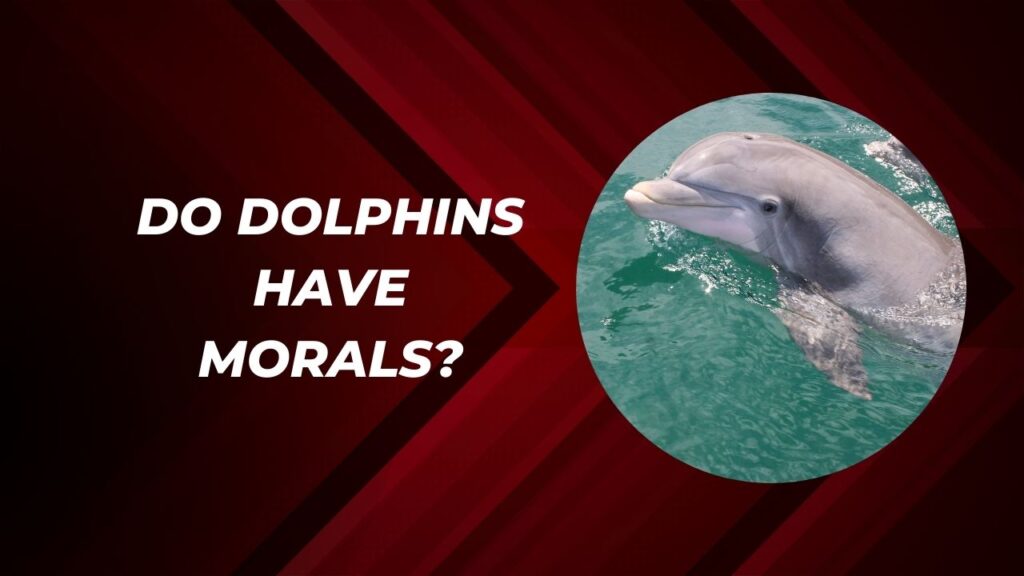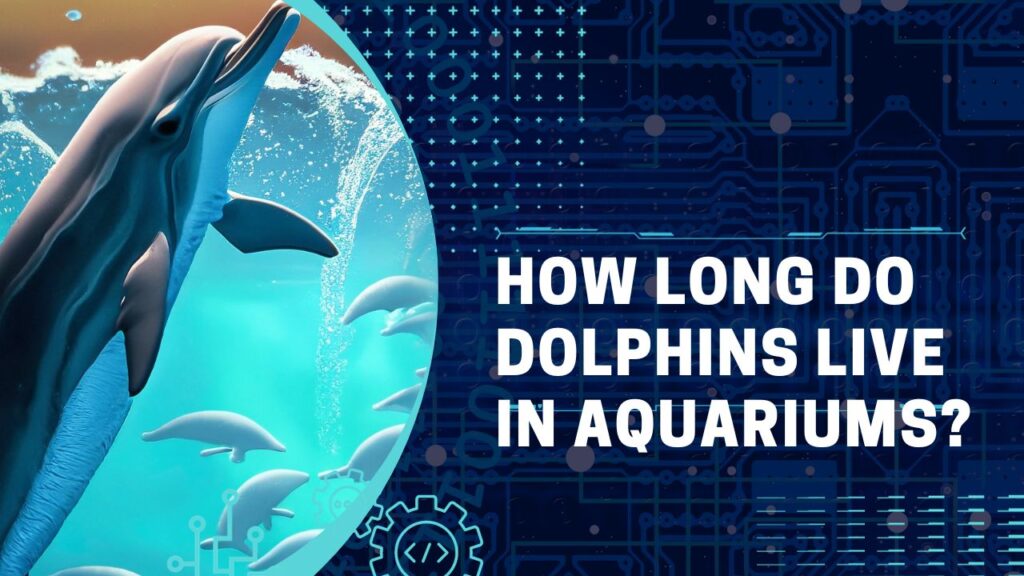
Do Dolphins Have Morals? Dolphins exhibit behaviors that could be interpreted as moral, such as cooperation and empathy, leading some researchers to suggest that they may indeed have a sense of morality.
Welcome to our blog! Today, we’re talking about dolphins and their cool social skills.
Dolphins are super smart and love hanging out with their friends. Scientists are curious if dolphins have a sense of right and wrong, just like us.
We’ll explore how dolphins help each other out and stick together. It’s like solving a big puzzle about how dolphins think and feel. Let’s plunge in and discover more about these awesome sea creatures!
Table of Contents
Introducing Dolphins
Dolphins are streamlined, elegant sea creatures with a high degree of intelligence. They have a long, narrow snout and a bent dorsal fin.
Dolphins are fun and inquisitive creatures who exhibit sophisticated social activities and develop close relationships with other members of their pod.
Their matriarchal social structure is built on the idea that women are the primary members of the community. [Do Dolphins Have Morals?]
Dolphins use a mixture of clicks, whistles, and body language to communicate within their pod.
Dolphin behavior raises moral and ethical questions for many scientists because of their complex social relationships and cooperative hunting strategies.
See Also: Do Dolphins Have Two Brains? Discover the Fascinating Truth!
Uncovering Dolphin Intelligence
For decades, scientists have been fascinated by the sophisticated cognitive abilities exhibited by dolphins. There have been concerns regarding whether they have a moral sense based on their emotional intelligence and capacity for forming close social relationships.
According to studies, dolphins exhibit acts of empathy and generosity, suggesting that they are capable of moral thought. Their profound problem-solving and communication abilities provide more evidence of their extraordinary intelligence.
Dolphin behavior, both in the wild and in captivity, is still being observed to provide light on moral dispositions and cognitive processes. [Do Dolphins Have Morals?]
Deciphering the depths of dolphin intelligence challenges our conceptions of moral consciousness and ethical action outside of the human sphere while providing an intriguing window into the complex inner workings of the animal kingdom.

Evidence Of Moral Behavior
Dolphins have been seen to hunt cooperatively, which suggests that they have a sense of morality. They exhibit excellent coordination and teamwork as they cooperate in groups to catch prey.
Dolphins may understand the value of supporting one another in order to accomplish a shared objective based on their cooperative behavior.
Dolphins have also been observed to do altruistic behaviors, including as helping out injured or distressed pod members. [Do Dolphins Have Morals?]
They have been observed providing safety and well-being by standing by those who are weaker. This altruistic conduct implies a moral regard for other people’s well-being.
These observations provide compelling evidence that dolphins possess a sense of morals, displaying cooperative and altruistic behaviors that go beyond instinctual actions.
Such moral conduct is a fascinating aspect of dolphin behavior, revealing their complex social dynamics and cognitive capabilities.
See Also: Do Dolphins Have Knees? Decoding the Aquatic Mystery
Ethical Implications
The moral behavior of dolphins begs the question of how deeply they grasp good and wrong. Research demonstrates that dolphins are cooperative, empathetic, and selfless, indicating that they are capable of moral reasoning.
These results cast doubt on conventional theories of moral ability and encourage more research on animal ethics. [Do Dolphins Have Morals?]
Examining several theoretical frameworks is essential when debating the ethical ramifications of dolphin behavior. The idea of animal rights is one such framework.
This viewpoint holds that dolphins should be regarded as sentient creatures capable of feeling emotions and exhibiting cognitive capacities.
This point of view makes the case for dolphin protection and acknowledges the moral implications of how they are treated.
Theoretical Frameworks:
| Theory | Description |
| Utilitarianism | Focuses on maximizing overall happiness and minimizing suffering |
| Deontology | Emphasizes adherence to moral rules and principles |
| Virtue Ethics | Concerned with cultivating moral character traits |
Challenges And Controversies
Dolphins’ moral behavior poses fascinating challenges and controversies for scientists. [Do Dolphins Have Morals?]
Many believe that dolphins exhibit moral traits, like helping others in need and forming complex social bonds.
However, this topic still sparks debate among researchers and philosophers, further adding to the existing controversies.
Anthropomorphism Debate
Dolphins are extremely intelligent animals that can exhibit sophisticated behaviors that seem to be moral considerations.
On the other hand, scientists continue to disagree on how much morality dolphins actually possess or whether their behavior is just a result of ingrained habits or reflexes.
It can be difficult to determine the motivations driving dolphin behavior. Some contend that analyzing their behavior only in terms of human morality amounts to anthropomorphism and can provide false results.
The term “anthropomorphism” describes the practice of giving non-human things human characteristics or feelings.
| Pros | Cons |
| Dolphins exhibit cooperative behaviors | Moral evaluation criteria differ between species |
| They display empathy and help injured individuals | Alternative explanations may exist for their behaviors |
| They show social learning and cultural transmission | Hard to determine whether actions stem from genuine moral considerations |
While evidence suggests that dolphins exhibit behaviors that resemble moral considerations, further research is required to fully understand the motives behind their actions.
It is important to approach this topic with caution and avoid imposing strictly human concepts of morality on non-human species.

Implications For Conservation And Research
Management of wildlife and the advancement of dolphin welfare are significantly impacted by our understanding of dolphin moral behavior.
Researchers can learn more about dolphin social structures and decision-making processes by researching their morals. This knowledge can then be applied to conservation efforts.
Dolphins have been shown to exhibit cooperative actions, like helping people who are hurt or in distress. This implies that they are human-like in their empathy and generosity.
Conservationists can create plans that safeguard dolphins’ welfare both in their natural environments and when they interact with people by taking into account these moral behaviors.
Furthermore, researching dolphin morality can help us better understand their cognitive abilities and intelligence, enhancing the effectiveness of captivity programs and rehabilitation efforts.
By acknowledging the moral agency of dolphins, wildlife managers can prioritize their welfare and provide them with suitable environments. [Do Dolphins Have Morals?]
See Also: Do Dolphins Have Nostrils? Discover the Fascinating Truth!
Frequently Asked Questions On Do Dolphins Have Morals?
Do Dolphins Have A Sense Of Morality?
Dolphins aid injured people and show empathy for other dolphins in their pod, among other actions that allude to a moral compass. But since they place a higher value on social cohesiveness and survival within their own species, their moral compass may be different from ours.
Can Dolphins Distinguish Right From Wrong?
Dolphins exhibit some discernment, even though they might not make moral decisions in the same manner that people do. They have a basic awareness of ethical conduct in their social interactions by being able to distinguish between cooperative and antagonistic acts.
Do Dolphins Display Altruistic Behavior?
Dolphins have been seen lending a helping hand to people who are hurt or in need of comfort, even when doing so does not directly benefit them. This conduct reveals a potential for selflessness and shows concern for other people’s welfare.
How Do Dolphins Maintain Social Harmony Within Their Pods?
Dolphins use intricate relationships and communication to form social bonds. To ensure harmonious relationships, they make use of vocalizations, body language, and kinship-based alliances. They keep peace in their pod by cooperating on hunting, sharing resources, and settling disputes.
Conclusion
Dolphins are amazing aquatic animals that never cease to astound us with their sophisticated social behavior and intelligence.
Dolphins are shown to have a moral compass through their cooperative hunting strategies and loving care for their offspring.
These amazing marine mammals appear to display behavior that goes beyond simple instinct, while research on this topic is still ongoing.
We may be able to learn more about the moral spectrum in the animal kingdom thanks to their capacity to establish close social relationships and take altruistic actions.
We might learn even more about the moral character of these amazing animals as we investigate dolphin behavior in depth.

Mr. Das, a certified pharmaceutical scientist, holds a Bachelor of Science in Pharmaceutical Sciences and passionately contributes to dolphin conservation as a member of the committee in Bangladesh.


